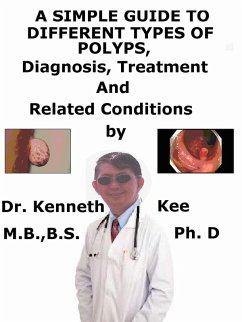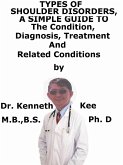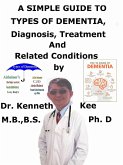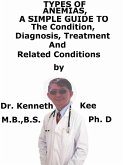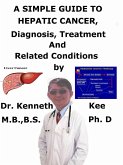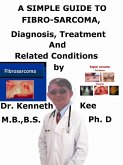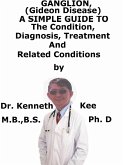A polyp is a benign vascular growth of tissue protruding from a mucous membrane or skin.
There are 2 main types of polyps:
1. Pendulated polyp:
Most of the time the pendulated polyp is attached to the surface by a narrow elongated stalk.
2. Sessile polyp:
If there is no stalk present, it is said to be sessile.
Polyps are abnormal tissue growths that most often appear as small, flat bumps or tiny mushroom-like stalks.
Most polyps are tiny (especially skin polyps) and smaller than half an inch wide.
Polyps in the colon are the most frequent, but it is possible to develop polyps in places such as:
1. Skin
2. Nose
3. Throat (Vocal Cord)
4. Ear canal
5. Cervix
6. Uterus
7. Stomach
Most polyps are benign, indicating they are not cancerous.
Since they are due to abnormal cell growth, they can ultimately become malignant, or cancerous.
This requires taking a small sample of tissue and testing it for the presence of cancerous cells.
Polyps are produced by abnormal growth of cells and often there is no obvious cause.
Throat polyps are normally due to an injury from shouting loudly or injury from a breathing tube.
Occasionally doctors cannot find out the cause of polyps.
Some known causes are:
1. Inflammation
2. A foreign object
3. A cyst
4. A tumor
6. Mutation in the genes of colon cells
7. Chronic stomach inflammation
8. Excess estrogen
9. Injury
Polyps develop through rapidly dividing cells, which is similar to how cancer cells multiply.
This is why they can be converted into cancers, even though most polyps are benign.
There are no known risk factors for ear canal polyps.
Risks for colon polyps
For colon polyps, the risk factors are:
1. Eating a high-fat, low-fiber diet
2. Being over 50 years of age
3. Having a family history of colon polyps and cancer
4. Using tobacco and alcohol
5. Having an intestinal inflammation disorder like Crohn's disease
6. Being obese
7. Not getting enough exercise
8. Having type 2 diabetes that isn't well-managed
9. African-Americans are also at a higher risk of developing colon polyps.
Risks for stomach polyps
The risk for stomach polyps rises with these:
1. Age- stomach polyps are more frequent in middle to old age
2. Bacterial stomach infections
3. Familial adenomatous polyposis (FAP), a rare genetic syndrome
4. Regular use of proton pump inhibitors like Nexium, Prilosec, and Protonix
Nasal polyps are more likely to develop in people with:
1. Continuing sinus infections
2. Allergies
3. Asthma
4. Cystic fibrosis
5. Sensitivity to aspirin
Women over 40 years of age and women who have had children are more prone to develop polyps in the uterus.
Men and people who smoke have a higher risk for bladder polyps, nose and vocal cord polyps.
Each type of polyp can produce distinctive symptoms based on their location.
1. Ear canal polyps - loss of hearing and bloody discharge
2. Nasal polyps-a cold that will not go away, headaches, nose pain or loss of smell
3. Throat polyps-hoarse and breathy voice
4. Bladder polyps-blood in urine or painful and frequent urination
5. Uterine polyps-irregular menstrual bleeding and infertility
6. Cervical polyps-normally no symptoms but can involve unusual discharge
7. Colorectal polyps-blood in stool, constipation or diarrhea
8. Stomach polyps-pain, nausea, vomiting
As a precaution all polyps should be removed before they become cancerous.
TABLE OF CONTENT
Introduction
Chapter 1 Polyps
Chapter 2 Skin Polyp (Updated)
Chapter 3 Nose and Sinus Polyp (Updated)...
Dieser Download kann aus rechtlichen Gründen nur mit Rechnungsadresse in A, B, CY, CZ, D, DK, EW, E, FIN, F, GR, H, IRL, I, LT, L, LR, M, NL, PL, P, R, S, SLO, SK ausgeliefert werden.

